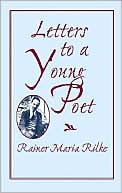The Carpet Makers by Andreas Eschbach.
The beginning is terrific. Each chapter focuses on a single character/member of this particular society and eventually each is woven into the larger story. The first half is absolutely enchanting, beautifully told. You get a clear view of this people, their fears and sorrows. However, by the end, when the mystery behind the carpets is revealed, it isn't as interesting as you'd expected it would be (maybe that was the real purpose, a cosmic prank). What I didn't like is that some characters disappear whitout a trace; and I really wanted to know what had happened to them. All in all, pretty interesting.
Las intermitencias de la muerte * by José Saramago.
 In a country whose name is not mentioned, something never before seen since the beginning of time happens: death decides to stop its unflagging track and people stop dying. From that moment on, the destiny of human kind will be to live eternally. A short period of euphoria is followed by despair and chaos.
In a country whose name is not mentioned, something never before seen since the beginning of time happens: death decides to stop its unflagging track and people stop dying. From that moment on, the destiny of human kind will be to live eternally. A short period of euphoria is followed by despair and chaos. This is my first Saramago. Many have said it isn't his best, or at least, it isn't as good as Blindness. They could be right. I can't tell since I didn't have the courage (or heart) to finish Blindness. Imagine death on strike. Interesting, exciting... think again. To live eternally doesn't mean to be young forever or to be healthy. There lies the dark twist in this fable. The first part is highly ironic and deals with the cruel destiny of the elderly, the ill, the fate of hospitals, insurance companies, funeral homes, old people's homes, the role of the government, the appearance of a new maphia (as they choose to call themselves). The second part gets a little bit more complicated and focuses on death as a character: why she decided to stop killing, why she decides to return, and finally what happens when she meets someone she can't kill.
Even if this isn't Saramago at his best, I did enjoy raeding this novel (its bitter criticism, its love story, and its particular style).* (I believe this novel hasn't been translated into English yet)
5 Comments:
Subscribe to:
Post Comments (Atom)

Mi primer Saramago era “Baltasar y Blimunda”, una novela maravillosa. Después va “Ceguera” (¡tienes que terminarla!), “El año de la muerte de Ricardo Reis”, una novela estupenda pero para me fue tan difícil leerla no sé ¿porque?
¡Me gusta Saramago mucho!
Ya sé, ya sé, tengo que juntar coraje y terminar Ensayo sobre la ceguera, pero es que el comienzo es tan cruel!
Creo que a mí también me va gustando Saramago un poquito más con cada libro que leo. :)
Por ejemplo “El Centauro” se puede hallar en muchas antologías, yo lo tengo en “Telling Tales” de Nadin Gordimer, donde hay cuentos de 20 escritores contemporáneos quienes han dado un de sus cuentos como contribución en la lucha contra el SIDA. (¡Qué frase! Ignora los errores por favor).